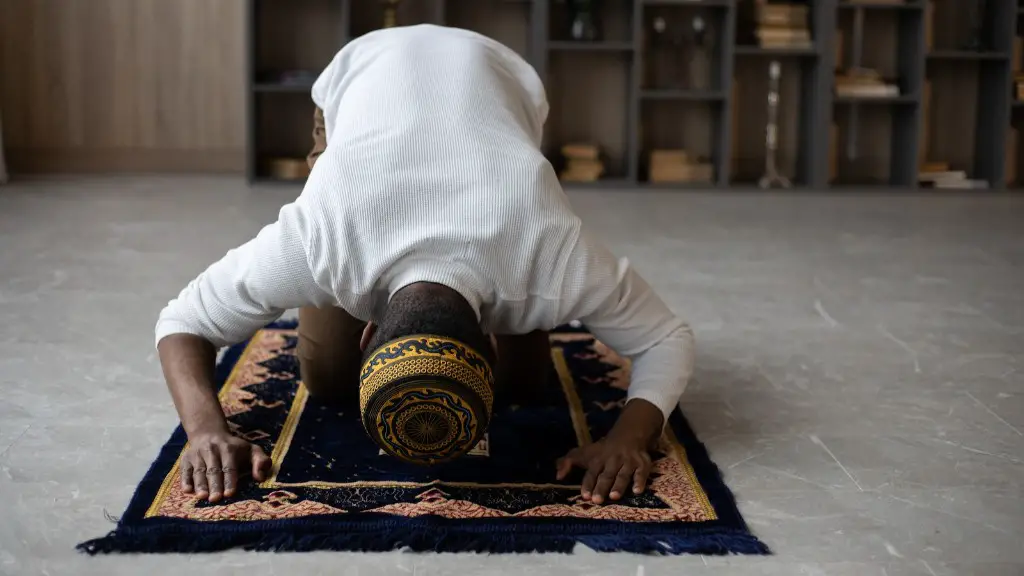Buddhism is a religion that was founded by Siddhartha Gautama in the northeast region of the Indian subcontinent circa the 5th century BCE. It is practiced by an estimated 488 million, or 7% of the world’s population, making it the fifth-largest religion in the world. There are two major branches of Buddhism, Theravada and Mahayana, and within these branches there are numerous schools and traditions. Central to Buddhist belief is the principle of anatta, or “not-self”, which teaches that there is no permanent self or soul. This doctrine is intended to promote compassion and detachment from the material world.
Buddhism is a religion that is based on the teachings of Siddhartha Gautama. He was born in India in the 5th century BC and was believed to be a reincarnated god. He taught that the way to end suffering was to live a life of moderation, and to follow the Noble Eightfold Path. This path includes right view, right resolve, right speech, right action, right livelihood, right effort, right mindfulness, and right concentration.
What are 5 basic beliefs of Buddhism?
The Five Precepts are moral guidelines for Buddhists to follow in order to live a life that is in line with the teachings of the Buddha. The precepts are: refrain from taking life, refrain from taking what is not given, refrain from the misuse of the senses, refrain from wrong speech, and refrain from intoxicants that cloud the mind.
Buddhism is a religion that teaches that everything is impermanent and that karma, or the consequences of our actions, determine our future. The main principle of Buddhism is rebirth, or the belief that after we die, we are reborn into another form. Buddhism also teaches that we are all interconnected and that we should live in harmony with each other and with nature.
Do Buddhist believe in God or Gods
Buddhist teachings state that there are divine beings called devas (sometimes translated as ‘gods’) and other Buddhist deities, heavens, and rebirths in its doctrine of saṃsāra, or cyclical rebirth. Buddhism teaches that none of these gods is a creator or an eternal being, though they can live very long lives.
There are many different values that Buddhism upholds, but some of the most important ones are love, wisdom, goodness, calmness, and self-control. Buddhists believe that it is important to try to end suffering in the world, and that all things are impermanent and have no real self or essential nature. By following these values, Buddhists hope to create a more peaceful and compassion world.
What is Buddhism vs Christianity?
There are inherent and fundamental differences between Buddhism and Christianity. Christianity is at its core monotheistic and relies on a God as a Creator, while Buddhism is generally non-theistic and rejects the notion of a Creator God. Christianity also believes in the divinity of Jesus Christ, while Buddhism does not. Buddhism teaches that all beings are equal and that there is no permanent self or soul, while Christianity teaches that there is a soul that exists beyond this life.
Buddhism is a faith that was founded by Siddhartha Gautama (“the Buddha”) more than 2,500 years ago in India. With about 470 million followers, scholars consider Buddhism one of the major world religions. The Buddha was born a prince, but he renounced his royal life to pursue enlightenment. After years of study and meditation, he attained nirvana (liberation from the cycle of rebirth). The Buddha then traveled and taught for the rest of his life, spreading his message of compassion and understanding.
Buddhists follow the Middle Way, a path of moderation between the extremes of self-indulgence and self-mortification. They believe that all beings have the potential to attain nirvana and that the path to enlightenment is open to everyone.
Buddhism teaches that life is full of suffering, but that this suffering can be ended by following the Eightfold Path. This path includes right understanding, right intention, right speech, right action, right livelihood, right effort, right mindfulness, and right concentration.
Buddhists seek to end suffering by detachment from the material world and by following the Noble Eightfold Path. Buddhism also teaches that all beings are interconnected
How do Buddhist believe in God?
Buddhists believe that human life is full of suffering. Siddhartha Gautama was an Indian prince who realized this when he saw people poor and dying. He decided to leave his life of luxury to search for a way to end suffering. He eventually found the path to enlightenment and became the Buddha.
Buddhist tradition views life and death as a continuum, with consciousness (the spirit) continuing on after death and potentially being reborn. Death, then, can be seen as an opportunity for liberation from the cycle of life, death, and rebirth. This teaching provides comfort for those grieving the loss of a loved one, as they can take solace in the belief that the individual’s consciousness lives on.
What is the main worship in Buddhism
Puja is the word that Buddhists use for worship. Worship is the expression of devotion, respect, admiration and the love for something. It is a means of gaining access to your emotions, your deepest thoughts and feelings, your true nature. For most religions, the object of worship is God.
In Buddhism, there is no concept of punishment or reward, and there is no divine being who decides who goes to hell or heaven. There is merely the illusory results of our thought, words and deeds, which we call karma.
Do Buddhists believe in Christmas?
Buddhists may celebrate Christmas in their own way, but generally speaking, they do not celebrate it in the Christian way. This is because Buddhists often see Jesus as an avatar of being blessed to our beloved Earth. Therefore, they may not attach the same importance to Christmas as Christians do.
Buddhism in general has restricted the consumption of alcohol since early times. This is because alcohol can lead to a loss of mindfulness and cause harm to oneself and others.
What is one of the most important beliefs in Buddhism
Buddhism teaches that after we die, our consciousness is reborn into another being. This happens over and over again, until we reach nirvana, or enlightenment. The belief in reincarnation is central to Buddhism.
However, it’s important to differentiate between the concepts of rebirth and reincarnation. In Buddhism, rebirth happens automatically — it’s not something that happens as a result of our actions in this life. And it’s not permanent — we’re not stuck in an endless cycle of rebirth.
By contrast, reincarnation is a belief that our soul is reborn into another body after we die. This happens as a result of our actions in this life, and it’s a permanent cycle.
The Middle Way is a path of moderation and balance. It is not extreme in any way, but rather provides a way to live a life of self-development and fulfilment. The Noble Eight-fold Path is a set of guidelines that help us to live a balanced and fulfilling life. Through following the path, we can develop our understanding, thoughts, speech, actions, livelihood, effort, mindfulness and concentration. By following the Middle Way, we can find true happiness and fulfilment in life.
How do Buddhists worship?
Buddhists worship at temples or monasteries, where they meditate and pray. Some also set up shrines at home to worship privately. Buddhists may offer fresh flowers, lights, and lamps, or burn fragrant incense at shrines with images of the Buddha. These acts are intended to pay respect to the Buddha and make merit for the devotee.
Christianity and Buddhism are two of the world’s major religions, and their beliefs couldn’t be more different. Christians preach of one God, creation and salvation, while Buddhists believe in reincarnation, enlightenment and nirvana. Because of these different beliefs, the two religions are not compatible.
Final Words
The beliefs of Buddhism can be summarized in what is called the Triple Gem, or the Three Jewels. These are the Buddha (the enlightened one), the Dharma (the teachings), and the Sangha (the community).
There are many beliefs of Buddhism, but some of the main ones are that all beings have the potential to achieve enlightenment, that karma affects one’s rebirth, and that the path to enlightenment is through moral conduct, meditation, and wisdom.



